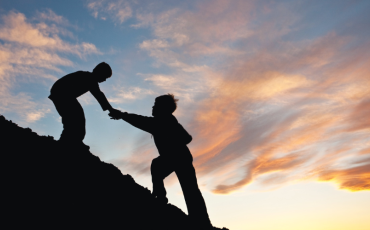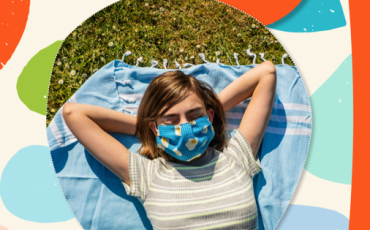What does the Children’s Rights Report 2014 say?
Archived
You are in an archived section of the website. This information may not be current.
This page was first created in December, 2014

What does the 2014 Children's Rights report say?
The report outlines work the National Children's Commissioner has done throughout 2013-14. It pays special attention to young children who are in early education and care. It's really important that kids learn about their rights as early as possible. It also looks at what worries and upsets children. The version on this page is for children and young people.

What are human rights?
Our human rights are the things we all need to have a good life. They also make sure we are kind and fair to each other.
Children’s rights are written down in a document called the United Nations Convention on the Rights of the Child.
As a child, you have the right to:
- be treated fairly
- have a say about decisions affecting you
- live and grow up healthy
- get information that is important to you
- be safe, no matter where you are or who you are with
- be cared for and have a home
- privacy
- get an education
- know who you are and where you come from.
The United Nations
There is a special group of people called the United Nations Committee on the Rights of the Child. These people watch out for children all over the world and tell governments how they can better protect children’s rights.
In 2012, the Committee looked at what life is like for children in Australia and told the Australian Government what it could do to make things better. They said that Australia does a lot of good things for children and young people, but that the Government can still do more. They were worried that some children:
- are being treated unfairly
- are being bullied and hurt
- are not getting the education they need
- can’t live with their parents
- are not as happy or as healthy as they could be
- do not have homes
- are in trouble with the law and need help
- are locked up
- are exposed to violence.
Australia needs to listen to children and young people and work harder to help them.
What if you were worried or upset? Would you know where to get help?
There are lots of ways that children and young people can get help for things that they are worried or upset by. You can talk to your parents, your family, friends and teachers.
If you wanted to talk to someone on the phone, you could call Kids Helpline on 1800 55 1800.
You could talk to someone face-to-face at a headspace centre and or online at www.eheadspace.org.au or on the phone on 1800 650 890.
There are also places to find mental health information online, such as ReachOut at http://au.reachout.com.



